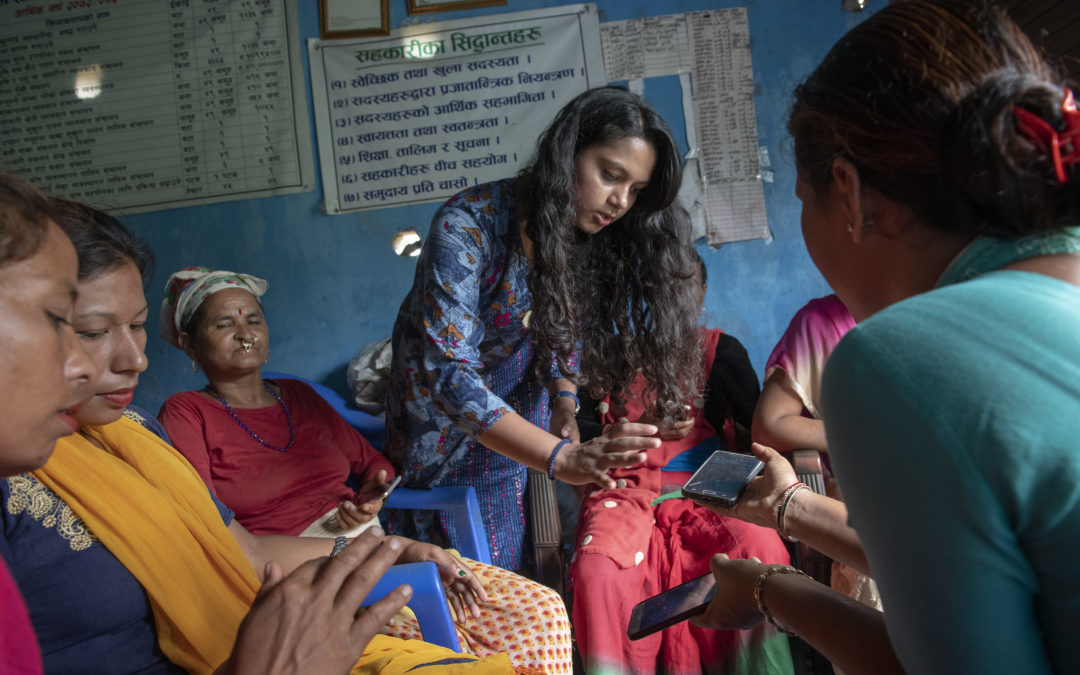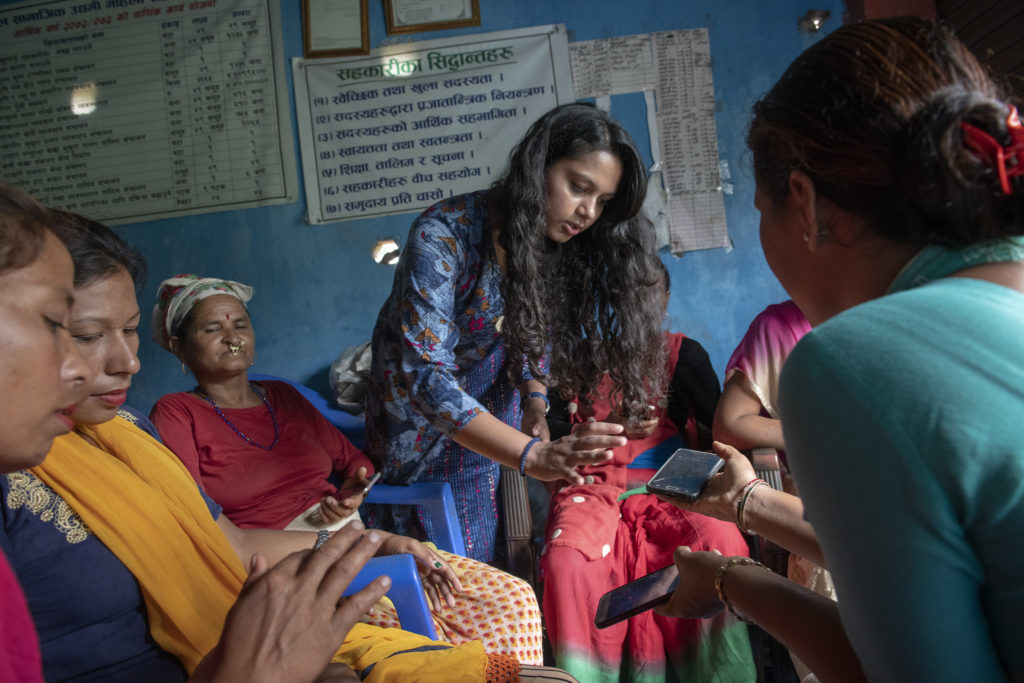COVID-19: How the development community can contribute to food system recovery and resilience
In the face of the novel coronavirus pandemic, open, data-driven collaboration and digitally-enabled global collective action are key tools for recovering and (re)building resilient global food systems.
We have identified some key ways CGIAR, BIG DATA and partners, and the wider development community can help:
Build and leverage high-frequency monitoring data
Our existing approaches for monitoring food systems are piecemeal, divergent, and at different scales than are needed to detect crises and inform systematic response and recovery. It does not have to be this way; a vast ocean of high-frequency data is available that can be used to monitor habitat change, fishing, changes in wealth and poverty, food prices, and more. There are also mature frameworks for structuring these observations in meaningful ways, such as the influential report from the EAT-Lancet Commission examining food systems within planetary boundaries. We need to converge these methods, data streams, data standards, and frameworks to better understand global food systems and improve our global mechanisms for sense and response.
Measure and build resilience
Resilience is commonly described as the capacity to recover from shocks, and it is rightly a mainstay of development strategy. It is, however, a multifaceted concept that has been used in psychological, ecological, social, and economic domains and it can mean different things in different contexts. Monitoring and measuring resilience is a challenge, yet it is the unifying concept we need as we leverage high frequency data, remote sensing and earth observation, and on-the-ground research across domains to guide how we build resilient ecosystems, economies, and social groups.
Drive data standards and ethical, open, data-driven collaboration
When the COVID-19 crisis subsides, it may well be seen as a triumph of agile, global, collaborative science. The rapid mobilization of governments, private industry, non-profits, and research organizations to align research and development efforts for therapeutics, vaccines, and diagnostics is unprecedented. This is made possible by data sharing, such as the COVID-19 Open Research Dataset, and well-developed biomedical ontologies. Data standards and data sharing made it possible to apply massive computing power to modeling to identify over 70 promising compounds for treatment in just under two days—a result that could have taken years in the lab.
Data standards and practices for responsible sharing in the agricultural space are maturing, and we urgently need to leverage them and deepen them if we are to build equivalent capabilities for early detection, diagnosis and intervention to build resilient global food security.
(Re)build adaptive, inclusive value chains
Moving whole food and farming systems towards long-term sustainability and resilience in the face of multiple shocks will require continually diagnosing vulnerabilities and discovering solutions, but this will not be sufficient. We also need new models for operationalizing the solutions. This could take many forms: novel digital methods of linking small producers and consumers or links in a value chain, digital financial products that build resilient farmer income or link regenerative practices with markets–and many more. These are only indicative. The global food system needs new digital business models; it is time to target digital innovation processes to deliver them.
Digitally enable global collective action
The data-driven capabilities we need to build new global food systems are hindered by the fragmentation of digital champions and their data assets. Alliances can help; at no other time in history has it been possible to assemble real-time, global connections at the level of richness, interactivity, and inclusivity as it is today. The COVID-19 crisis has shown that agile, collaborative global alliances can form almost overnight; we need to do the same thing in service of global food security.
Build a new normal
Global food may never return to normal; in fact, the “normal” fragility and inequity in our food systems has been thrown into sharp relief. Rapid digitization of food systems spurred by the COVID-19 crisis may accelerate harm to unconnected groups. We have an opportunity to claim new organizational capabilities and apply them to build better, more inclusive food systems, equipping global food with the adaptive agility it will need to navigate an array of climatic, economic, and political shocks in the future.
What is BIG DATA doing?
The whole of CGIAR is pivoting its 2020 plans towards response, recovery, and long-term resiliency of global food in light of the COVID-19 crisis. BIG DATA is supporting that effort, serving a cross-cutting, big-data enabling, and partnership role for our global organization.
BIG DATA facilitates access to shared services to big-data enable response, recovery, and resilience. We anticipate these services will contribute to equip researchers and programs to sense and respond in a unified way to the crisis.
The shared services include:
Computer-assisted phone surveys. Through a framework agreement with the Interactive Voice Response provider Viamo, researchers can run computer-assisted phone surveys virtually anywhere in the world with a mobile phone. Viamo has secured airtime grants from many of their partner mobile companies specifically in support of COVID-19 response.
Commercial satellite imagery. The archive of the satellite imagery provider Maxar is available to CGIAR researchers, and the Platform is in the process of securing in-kind contributions of imagery and computation capacity from other actors to support important applications including monitoring and predicting food flows, and understanding relevant changes in land use.
Securing high-frequency monitoring data. BIG DATA has gained access for CGIAR to the maps portal from Facebook Research (who continue to generate important gender-disaggregated public data sets on population movements and density) to facilitate easier integration into geospatial analysis. We are also sourcing traffic flow data to detect potential cross-border blockages.
High performance computing: Monitoring, modeling, and predicting food and resource flows will be essential for managing crisis response, recovery, and long-term resilience. This kind of analysis can be very compute-intensive. Big Data Platform provides Globus, a software service from the grid-computing world, that enables secure sharing of store-and-compute resources across organizations’ on premise and cloud infrastructure, and we are finalizing some some in-kind contributions of compute resources from partners specifically for COVID-19 related food research (that we should be able to announce soon).
Facilitating internal sourcing of experts: In 2019 we integrated the Active Directory of CGIAR emails, publications in the public domain, and the researcher ontology VIVO to create a ‘CGIAR Expert Finder’ that we will make available to research leaders to search for available expertise across the consortium for response, recovery, and resilience research.
GARDIAN and CGLabs: CGIAR has the global open data standards and infrastructure to enable us to work collaboratively across centers and programs to sense, respond, and foster recovery from the gamut of food security challenges that will likely flow from the COVID-19 crisis. Big Data has complemented this with a private analytic workspace linked to GARDIAN called CGLabs, where researchers can search data across CGIAR and partners and assemble it in a workspace to run analysis and access compute resources. Analytic products can be published in Center repositories or shared directly with colleagues via Globus.
Feature photo credit: C. De Bode / CGIAR.
April 24, 2020
Brian King
Coordinator
CGIAR Platform for Big Data in Agriculture
Cali, Colombia
14 - 14Shares
Latest news
14 - 14Shares







Dear Sir/Madam,
I am a research assistant in the field of Fisheries biology & aquatic environment. I would like to get myself engaged with your organization to work as volunteer.
Hi Reean – we have a journal paper coming out soon which explains the methodology. You can also find the relevant project deliverables here https://gate.ac.uk/projects/knowmak
Hope that helps
Diana